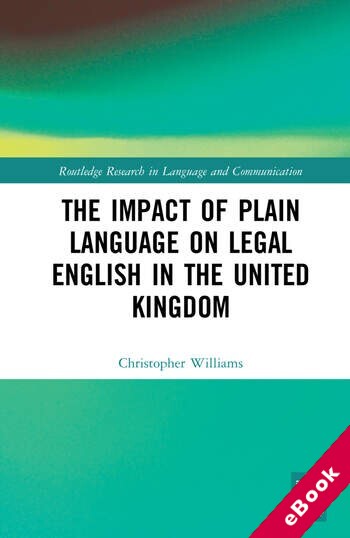
The device(s) you use to access the eBook content must be authorized with an Adobe ID before you download the product otherwise it will fail to register correctly.
For further information see https://www.wildy.com/ebook-formats
Once the order is confirmed an automated e-mail will be sent to you to allow you to download the eBook.
All eBooks are supplied firm sale and cannot be returned. If you believe there is a fault with your eBook then contact us on ebooks@wildy.com and we will help in resolving the issue. This does not affect your statutory rights.
This book offers insights into the ways in which plain language has influenced the language of the law in the United Kingdom, critically reflecting on its historical development and future directions.
The book opens with an overview of the theoretical frameworks underpinning plain language and a brief history of plain language initiatives as a foundation from which to outline ongoing debates on the opportunities and challenges of using plain language in the legal domain. The book details strands where plain language has had considerable impact thus far on legal English in the UK, notably in legislative drafting, but it also explores areas in which plain language has made fewer inroads, such as the language of court judgments and that of online terms and conditions. The book looks ahead to unpack highly topical areas within the plain language debate, including the question of design and visualisation and the ramifications of digitalisation, contributing to ongoing conversations on the importance of plain language both in the UK and beyond.
This book will be of particular interest to students and scholars interested in the intersection of language and the law as well as related disciplinary areas such as applied linguistics and English for Specific Purposes.